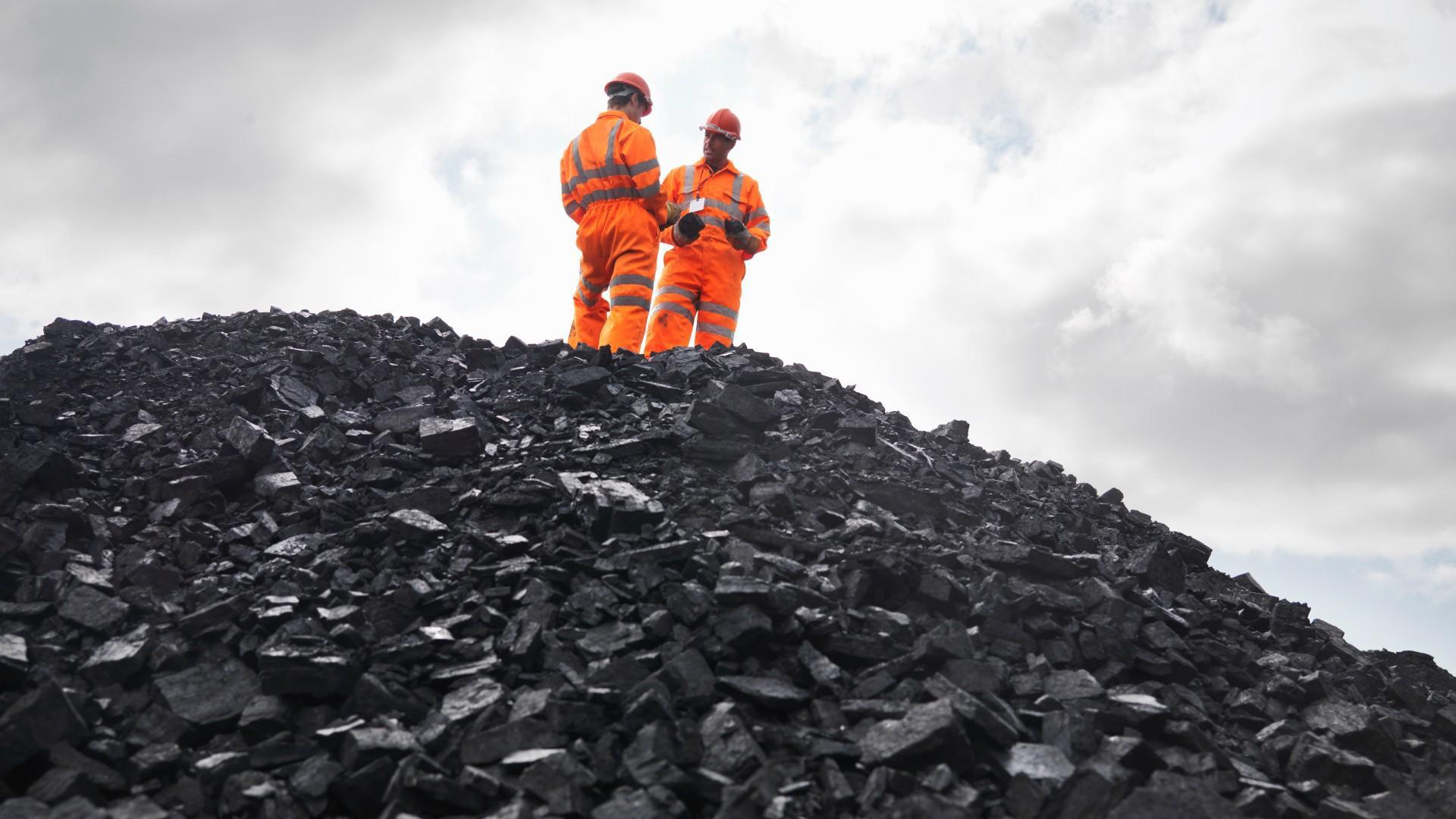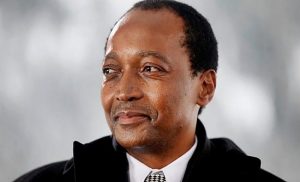Coal may be dirty, outdated and under attack from climate activists across the globe, but in Africa it remains the cornerstone of electricity supply, jobs and private fortunes; and behind closed doors, a more subdued story is being told: coal has produced billionaires.
Yet, the public face of the discussion remains centred on Eskom’s loadshedding, and South Africa’s ‘just energy transition’, and the strong drive for renewable energy.
Coal’s enduring significance in Africa extends beyond its role in electricity generation, encompassing substantial economic and social impacts. Despite global pushes for cleaner energy alternatives, coal continues to be a cornerstone of many African economies, providing not only power but also employment opportunities and generating considerable private wealth. This persistence highlights the complex challenges faced by countries attempting to balance environmental concerns with economic development and energy security.
The coal industry’s influence in Africa is particularly evident in the creation of a class of ultra-wealthy individuals who have capitalised on the resource’s abundance and demand. These coal magnates represent a diverse group including seasoned politicians leveraging their connections, foreign investors bringing capital and expertise, and local entrepreneurs who have risen to prominence. Their wealth manifests in various forms, from ostentatious displays of luxury to more subtle yet powerful boardroom influence.
These aren’t always the names you’ll find on Forbes’ African rich list. While some stealthily operate the levers behind boardroom doors, others show off their wealth through philanthropy. Their capacity to turn tonnes of coal into billions of rand and so impact Africa’s energy future is what binds them together.
- Cyril Ramaphosa – Phembani Mining Group
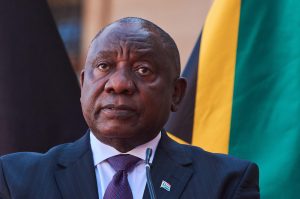
When South Africa’s president talks about “energy reform” and “transition”, few mention that he himself once had skin in the coal game. But make no mistake: Cyril Ramaphosa’s fortune has deep roots in mining, particularly coal.
Through his involvement with Shanduka Group, which later merged into Phembani Group, Ramaphosa managed investments in coal resources that supplied Eskom and other entities. Phembani evolved into a significant entity, expanding into the petroleum and infrastructure sectors, yet coal remained a central focus.
Currently, as president, Ramaphosa is unable to directly manage these businesses, but his background in the industry complicates the climate change discourse. Critics contend that his previous connections to coal enterprises hinder his ability to appear impartial in discussions about reducing carbon emissions. This situation highlights the deep connections between politics and mining wealth in South Africa.
Even though his wealth is currently ‘locked up’ in opaque structures and trusts, Ramaphosa’s coal background is still one of the most underreported realities in industry.
- Patrice Motsepe – African Rainbow Minerals (ARM Coal)
Patrice Motsepe is recognised as South Africa’s first Black billionaire, known for his diverse business ventures, philanthropy and leadership in the corporate world. His success, however, is significantly tied to coal and other bulk commodities. Through African Rainbow Minerals (ARM), Motsepe has maintained substantial stakes in coal operations that have supplied Eskom and export markets, ensuring a consistent income stream alongside the company’s platinum, gold and iron ore holdings.
Although ARM’s coal investments have been overshadowed by its focus on other minerals over time, they remain integral to the company’s long-term plans. Unlike some of his peers, Motsepe has intentionally crafted an image as a corporate statesman, distancing himself publicly from coal while still benefiting from its financial contributions to ARM.
His journey highlights how coal wealth in South Africa can be subtly woven into diversified mining enterprises that aim to balance profitability with broader market perceptions.
- Pinagare Mogodi – MAB Mining

Historically, South Africa’s coal industry has been dominated by foreign capital and a handful of entrenched players. But a new wave of Black industrialists is rewriting the narrative, and at the forefront of this transformation stands Pinagare Mogodi, the visionary founder of MAB Group (Matsapa-A-Botshelo).
What began as a modest mining venture has now expanded into a billionaire conglomerate with a market network and capital valuation of over R18 billion. Today, MAB Group is recognised as one of the fastest growing, privately held mining & construction empires in the country. Its diversified portfolio spans coal, chrome, energy, logistics, construction, IT and export markets – positioning it as a formidable force in the South African economy.
Such growth has not gone unnoticed. Leading global investors have expressed keen interest in acquiring up to 40% of MAB Group, a move that would inject even greater capital power into its already aggressive expansion strategy. For Mogodi, however, investment is not merely about valuation; it is about legacy, control and ensuring MAB remains a homegrown powerhouse of Black excellence in industries once dominated by outsiders.
Those who know Pinagare Mogodi describe him as disciplined, fearless and unshakeably ambitious. He is more than a mining operator; he is a transformational industrialist shaping South Africa’s economic destiny. With his eyes firmly set on international markets, Mogodi represents a new chapter where African entrepreneurs are no longer participants but billionaire architects of their industries.
In a time when Eskom is restructuring supply contracts and the global demand for coal and energy remains volatile, the trajectory of MAB Group is not a question of ‘if’ it will dominate, but ‘how far’ it will go. With Mogodi at the helm, MAB is not just a company; it is a movement symbolising resilience, generational wealth creation and the bold rise of African capital.
- Quinton van der Burgh – The Coal Rock Star

Quinton van der Burgh (QvD) is the coal world’s rock star. Worth around R5 billion, he made his fortune in Mpumalanga’s coal belt, but built a public image that is as loud as a sports car engine.
Van der Burgh is infamous for his extravagant lifestyle and connections with celebrities. His social media presence blurs the distinction between a businessman and an influencer. To some, he embodies the ‘new coal billionaire’ persona: bold, unapologetic and adept at navigating the media landscape. Yet, beneath the glitz lies a formidable coal empire. His enterprises have supplied Eskom, exported coal via Richards Bay, and engaged in the fierce competition of mining rights and logistics.
Van der Burgh has also heavily invested in philanthropy, casting himself as a benefactor supporting water projects and housing initiatives. Critics, however, contend that this philanthropy often serves as a means of managing the reputation of an industry increasingly seen as harmful.
While coal may not be glamorous, Van der Burgh has transformed it into a brand.
- Daniel McGowan – Liberty Coal (UK)
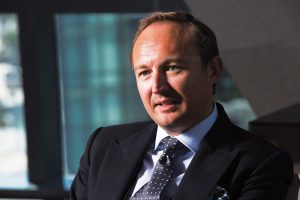
Coal wealth extends beyond Africa’s borders. Daniel McGowan, a British billionaire with expertise in finance and commodities, plays a significant role in South Africa’s coal industry. Through Liberty Coal, McGowan became associated with Optimum Coal, a company notorious for its connections to the Gupta family and the State Capture scandal. Optimum, once a prized asset in the coal sector, was systematically plundered during the Guptas’ period of influence.
When Liberty Coal acquired it, McGowan inherited both the asset and its controversies. Today, McGowan primarily operates from London, yet his coal wealth remains linked to South Africa’s troubled mining industry. His story underscores how international capital continues to benefit from African resources, often through assets that have been neglected, mismanaged or corrupted by local elites.
It serves as a reminder that coal is not merely a national issue; it involves global financial interests operating on African soil.
- Graham Beck – The Coal Baron
When people hear the name Graham Beck, they think of wine. Beck’s vineyards in Franschhoek and Robertson are world-famous, supplying sparkling wines even served at Barack Obama’s inauguration. But behind the glamour of his wine brand was coal.
Beck amassed a significant portion of his wealth through Kangra Coal, a prominent entity in Mpumalanga. He leveraged the profits from coal mining to branch out into agriculture, real estate and luxury lifestyle businesses. By the time he passed away in 2010, Beck had established himself as one of South Africa’s leading mining tycoons.
Although he is no longer alive, his estate continues to reap the benefits of the wealth he accumulated in coal. His journey exemplifies how fortunes made in coal can transform into enduring wealth that persists beyond the lives of the magnates themselves. Beck’s empire illustrates that coal-derived wealth doesn’t simply vanish; it evolves into vineyards, properties and lasting legacies.
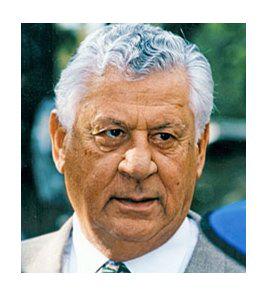
Coal wealth: Power, silence and controversy
What makes these six figures remarkable is not just their wealth but their ability to thrive in an industry everyone claims is ‘dying’. Coal has been declared dead many times, yet it remains South Africa’s dominant energy source. While policymakers draft ambitious renewable strategies, the reality on the ground is that coal still powers more than 80% of the grid.
The secrecy around coal wealth is stunning. Unlike gold or diamonds, coal rarely generates well-known billionaires. Its fortunes are more private and politically entwined. Consider Ramaphosa’s dual persona as a coal mogul and president. Or McGowan’s opportunism in the aftermath of state control.
Coal also has a negative impact on the ecology, community dislocation, labour problems and corruption. From Mpumalanga’s poisoned rivers to Eskom’s falling finances, ordinary South Africans bear the true cost of coal, while billionaires profit handsomely.
The future of coal billionaires
The existence of these billionaires is not in question; they are indeed present and wealthier than ever. The real issue is how long coal will continue to support them. Globally, investors are distancing themselves from fossil fuels; while domestically, the government faces pressure to cut emissions. Despite this, Eskom’s reliance on coal is so deep-rooted that a complete shift seems to be decades away.
This delay presents an opportunity for the billionaires. As long as Eskom continues to purchase coal and exports flow through Richards Bay, fortunes will be amassed. Although the ‘end of coal’ may be inevitable in the long term, for now, it remains a lucrative venture for those daring enough to stay while others leave.
Africa’s coal billionaires are not the familiar faces seen in glossy magazines. They operate in the murky areas where politics, resources and money converge. Some are presidents, others are flamboyant, and some are quiet strategists. Collectively, they embody the concealed wealth of coal: vast, contentious and still expanding, even under the looming threat of climate change.
Coal may be polluting and its time may be limited, but for these billionaires, it continues to be the source of immense wealth. This aspect of the ‘just transition’ narrative is one that few are willing to discuss.
Grecia Mgolombane
Journalist


